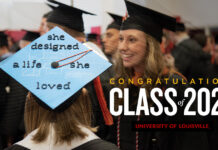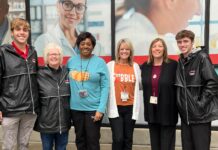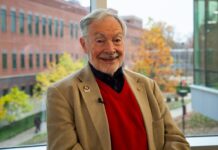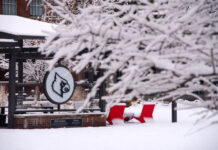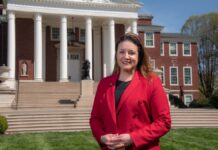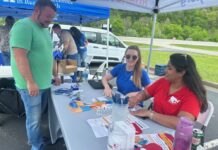
For Kasen Meek, it was the care and courage of nurses working during the Covid pandemic that convinced him to embark on nursing as a second career. His dad and childhood best friend unfortunately contracted the disease at the same time.
“Fortunately, my dad pulled through, but my friend was not so lucky,” Meek said. “I learned that nurses held my friend’s phone, letting her Facetime with family after being extubated and as she passed. The kindness of nurses struck me over and over again – and solidified that nursing was my calling.”
Fortunately for Meek, his transition from a marketing career to nursing was aided by a University of Louisville School of Nursing’s workforce grant. A scholarship and funding support allowed him to take an accelerated path from work as a licensed practical nurse (LPN) to earning a bachelor of science in nursing (BSN). “Earning my BSN is something I knew I wanted to do, but cost and time were the initial prohibiting factors,” Meek said. “I know for certain that I would not be working on my BSN right now if it were not for this incredible scholarship opportunity.”
Originally awarded to UofL in Aug. 2023, the $3.9 million Health Resources and Service Administration (HRSA) grant was designed to create an accelerated LPN to BSN pathway to address Kentucky’s nursing shortage in medically underserved areas, as well as reduce financial barriers for working LPNs to advance their nursing education.
Program helps transform student lives and communities
Enrollment soared from 24 students in the first year to 74 in the second year, and the program also has expanded from 19 to 41 Kentucky counties. Ninety-two percent of applicants and enrollees live in medically underserved areas. Based on current progress, 60 students are projected to complete a BSN degree within the next 24 months, strengthening the Registered Nurse workforce in rural and underserved communities.
“Not only are we making this program accessible to students but also having the scholarships and the stipends available has been a major factor why we have seen such growth in year one to year two,” said Heather Mitchell, project director and associate professor of nursing education. “Students are having a very positive experience and they’re going back and telling their peers.”
Through this fully online program, UofL is bringing baccalaureate education to all parts of the state and preparing nurses to serve the communities in which they live. Incorporating the best practices of online education ensures that even in the most rural and remote locations, students are able to attain the same high-quality education as someone who lives just two minutes away from UofL.
“Our students are participating in community-based experiences for the clinical education in their home areas and developing projects that directly impact those communities with tangible outcomes,” Mitchell said.
Education innovation through real-world scenarios
Innovation in nursing education is also a hallmark of the LPN to BSN program, including the use of simulations to expose students to scenarios they might encounter in their nursing practice.
Through team collaboration, Mitchell, along with Simulation Director Christina Pennington, Program Director Diane Riff and Program Manager Joel Schmidt have created a simulation directory that blends academic and real-world learning. The directory includes scenarios on respiratory disease in coal regions, gun violence trauma response, mental health and homelessness, among others.
The students aren’t the only ones to benefit from these resources. Each simulation is being embedded into RN-BSN online courses and being prepared for public release as open-source resources with full documentation, ensuring broad access. This will extend the impact to nursing programs statewide and nationally.
Mitchell said she is proud the innovative program is providing such an enriched experience for students. Schmidt agrees. “I receive comments from students about how much these scholarships and stipends mean, and how anchored in purpose these students feel for being able to go back and work in their own community. It’s something bigger than themselves.”













